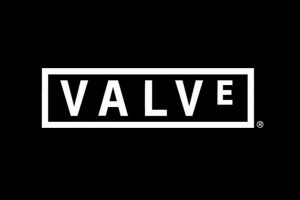Game-Maker Valve Transfer to Choke Off $7.4 Billion Gambling Market

Dealing with a wave of criticism and legal action, computer game maker Valve is leaving the rapidly expanding wagering ecosystem that has evolved around its video games, possibly damaging a market that was expected to take $7.4 billion in bets this year.
The Bellevue, Wash.-based company states it will punish sites that use Steam, Valve’s no deposit casino software application, to assist in gaming, a reversal from its previous assistance.
” We ‘d like to clarify that we have no business relationships with any of these sites,” stated Erik Johnson, a business spokesperson, in a statement. “We are going to start sending notifications to these websites requesting they stop operations through Steam.”
In April, a Bloomberg examination raised concerns about Valve’s relationship with the websites, which are especially popular amongst minor players. “This is long overdue,” stated video game lawyer Ryan Morrison of Morrison & Lee LLP. “I’m really sick of getting e-mails stating, ‘I’m 15 and lost a thousand dollars on a Counter-Strike gaming site.'”.
For about five years, Valve has encouraged players of video games like Dota 2 and Counter-Strike: Global Offensive to gather virtual products like decorative weapons. These weapons can be obtained through game-play or acquired through Steam. Users can also exchange betting tips, trade the products (referred to as skins), or sell them for money or use them to position bets on other sites, all of which depend on Valve’s software application to operate.
Valve now says using its software in this way breaches its terms and services. “From exactly what I can see this appears to be the beginning of completion of widespread skins betting,” stated Chris Grove, an author of a recent report on skins betting.
Composing for Eilers & Krejcik Gaming and Narus Advisors, Grove and his colleagues approximated that the $7.4 billion in skins wagering this year would determine 12 times the quantity wagered in cash through developed books like Ladbrokes. Left uncontrolled, skins wagering might grow as high as $22.6 billion in 2020, the report states.
Valve’s relocate to shut this market down could have strong repercussions for the company and the legions of mainly young men who play its games. An open trick in the gaming world, skins gambling was extensively credited for turning Counter-Strike into one of the world’s most popular titles for competitive video gaming including casino bonus. When Turner Broadcasting and WME/IMG produced an e-sports league for prime-time television this spring, the video game it selected was CS: GO.
As for the players who have actually accumulated caches of skins worth genuine cash, Valve’s Johnson said, “Users need to most likely consider this info as they handle their in-game item inventory and trade activity”.
Last month, a Connecticut guy took legal action against Valve in a potential class-action match that drew heavily from Bloomberg’s investigation. A second fit rapidly followed in Florida. The company should respond to the first problem in the next numerous days.
In addition to legal action, the world of skins gambling drew brand-new fire in the past couple of weeks with two separate, prominent revelations. CS: GO Diamonds, a website where gamers utilize skins to bank on virtual dice rolls, confessed to tipping a sponsored gamer making the website look more exciting to his half-million fans. Mohamad’m 0E’ Assad, a player, broadcaster and online character, admitted that he utilized the advance knowledge to win.
At the start of this month, a set of popular esports YouTube personalities, Trevor ‘TmarTn’ Martin and Tom ‘ProSyndicate’ Cassell, were exposed to be part-owners of a skins wagering website that they promoted in their videos. Both had posted videos of them winning big quantities in skins on the website CSGO Lotto, without divulging that they were associated with these websites.
